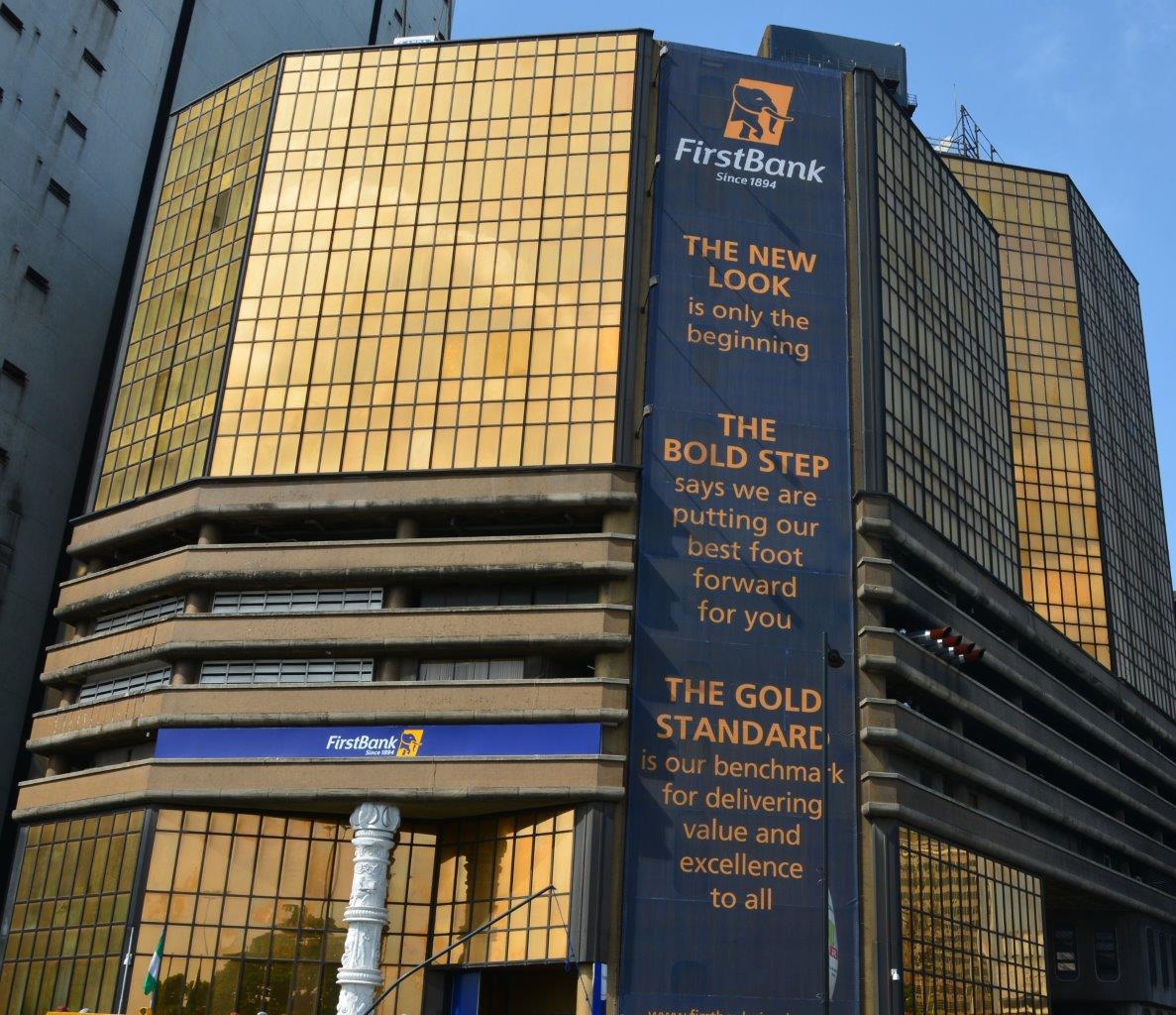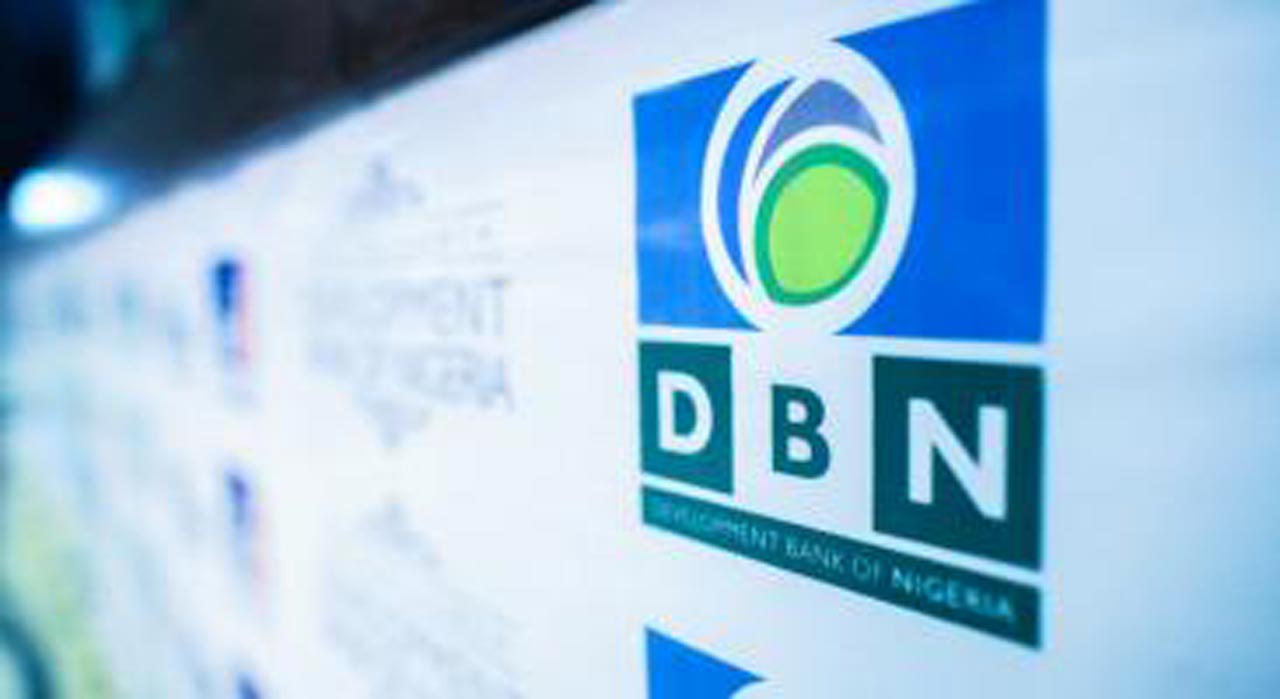Banking
Moody’s Fears First Bank Financial Health Could be at Risk

By Dipo Olowookere
There is every possibility that the financial health (solvency) of First Bank of Nigeria Limited, the flagship subsidiary of FBN Holdings Plc, could be at risk, Moody’s Investors Service has feared.
The rating agency in a report on Wednesday also said the management team of the bank could find it difficult to focus on implementing the company’s strategic plan.
First Bank has been in the news recently following the botched boardroom coup that initially ousted its Managing Director, Mr Adesola Adeduntan.
The Veterinary Doctor turned banker was removed from office by the board of the organisation formerly led by Mrs Ibukun Awosika and was replaced by his deputy, Mr Gbenga Shobo.
However, the Central Bank of Nigeria (CBN), the primary regulatory agency for the banking sector in the country, restored him and sacked the board as well as that of its parent company led by renowned businessman, Mr Oba Otudeko.
The apex bank revealed that it took the action to protect the interest of depositors, minority shareholders and others, revealing that it had been supporting the lender with funds in the past so as not to allow it to crash.
It was alleged that First Bank had been granting loans to its directors, especially to Mr Otudeko and one of his companies, Honeywell Flour Mills, without clears ways of recovering them, though this was denied.
As a result of the board crisis shaking the banking institution, Moody’s said it has placed all long-term ratings and assessments of First Bank on review for downgrade.
The agency said the action of the CBN on the bank clearly showed “corporate governance shortcomings and weaknesses in board oversight.”
Moody’s noted that though the management team has been restored, the crisis “could distract management’s focus on implementing the bank’s strategic plan and the road to recovery,” pointing out that the development was also likely to sway “investor confidence.”
“In addition, the rating agency notes First Bank’s relatively low proportion of provisions to its NPLs (non-performing loans), at just about 40 per cent, which puts its solvency at some risk in case higher loan-losses materialise than previously expected.”
The management team led by Mr Adeduntan worked tirelessly to reduce the NPL ratio of the financial institution from 25.9 per cent in 2018 to 7.7 per cent at year-end 2020 and this has been commended by several observers and analysts.
But the rating firm noted that First Bank “needs to implement regulatory directives concerning the resolutions of loans to and shareholding in non-banking related parties, which reportedly had not been executed in the recent past.”
It said the review for downgrade of First Bank rating will focus on its “ability to address the shortcomings highlighted by the regulator as concerns its governance and risk procedures, among others, the management of its loan portfolio to related parties.”
Moody’s stated in the statement sighted by Business Post that it would “monitor any further corrective actions that the regulator may require.”
“Moody’s will also assess the likely impact of these changes on the bank’s risk governance, its solvency level and its on-going efforts to reduce the bank’s stock of NPLs,” it added.
It disclosed that, “The bank’s long-term deposit ratings could be downgraded if deficiencies in the governance structures of the bank persist and if there is any further sanctioning of the bank by the CBN, including but not limited to requirements to take corrective measures of any weaknesses that could be uncovered. Weaker financial performance than expected could also lead to a downgrade of the ratings.”
“There is limited likelihood that First Bank’s ratings could be upgraded given the review for downgrade and the negative outlook on the government of Nigeria, its support provider in case of need,” adding that “stronger solvency improvements than what is currently captured in the ratings, together with a stabilisation of the sovereign outlook, could lead to stabilisation of the outlook.”
Banking
Access Bank Opens Branch in Malta to Strengthen Europe-Africa Trade Ties

By Modupe Gbadeyanka
To strengthen Europe-Africa trade ties, Access Bank has opened a new branch in Malta. It will focus on international trade finance, employing approximately 30 people in its initial phase, with plans for controlled expansion over time.
It was learned that this Maltese branch was established by Access Bank UK Limited, the subsidiary of Access Bank Plc, which is also the subsidiary of Access Holdings Plc, which is listed on the Nigerian Exchange (NGX) Limited.
Access Bank Malta Limited commenced operations after obtaining a banking licence from the European Central Bank (ECB) and the Malta Financial Services Authority (MFSA).
Access Bank said the licence marks a transformative milestone in bolstering Europe-Africa trade flows.
Malta, a renowned international financial centre, and a gateway between the two continents, is strategically positioned to play a pivotal role in advancing commerce and fostering economic partnerships.
This strategic expansion into Malta enables The Access Bank UK Limited to leverage growing trade opportunities between Europe and Africa.
It underscores the organisation’s commitment to driving global trade, financial integration, and supporting businesses across these regions.
“By establishing operations in Malta, we will gain a foothold in a market that bridges European and North African economies, moving us one step closer to our goal of becoming Africa’s Gateway to the World.
“It further enhances our bank’s capacity to support clients with innovative solutions tailored to cross-border trade and investment opportunities,” the chief executive of Access Bank, Mr Roosevelt Ogbonna, stated.
“Europe has emerged as Africa’s leading trading partner, driven by initiatives such as the Economic Partnership Agreements between the EU and African regions and the African Continental Free Trade Area (AfCFTA).
“With Europe-Africa economic relations entering a new phase, The Access Bank Malta Limited is ideally positioned to deepen trade and meet the financing and banking needs of our clients in these expanding markets,” the chief executive of Access Bank UK, Mr Jamie Simmonds, commented.
Also speaking, the chief executive of Access Bank Malta, Renald Theuma, said, “Malta is uniquely positioned as a bridge between Europe and Africa, making it an ideal location for our subsidiary. This move allows The Access Bank Malta Limited to engage more closely with customers in Europe and deliver tailored financial solutions that drive growth and connectivity across both continents.”
Banking
Goldman Sachs, IFC Partner Zenith Bank, Stanbic IBTC, Others to Empower Women Entrepreneurs

By Adedapo Adesanya
The International Finance Corporation (IFC) and Goldman Sachs have announced a new partnership with African banks, including Nigeria’s Zenith Bank and Stanbic IBTC Nigeria to support the Goldman Sachs 10,000 Women initiative, a joint programme launched in 2008 to provide access to capital and training for women entrepreneurs globally.
The two Nigerian banks are part of nine financial institutions from across Africa which have agreed to join the 10,000 Women initiative committing to leverage the business education and skills tools the programme provides to create more opportunities for women entrepreneurs across the continent by providing access to business education.
Others banks include Stanbic Bank Kenya, Ecobank Kenya, Ecobank Cote d’Ivoire, Equity Bank Group, Banco Millenium Atlantico – Angola, Baobab Group, and Orange Bank.
Speaking on this, Ms Charlotte Keenan, Managing Director at Goldman Sachs said – “10,000 Women has had a powerful impact to date, but we know that there are more women to reach and more potential to be realized.
“We are delighted to partner with IFC to supercharge the growth of women-owned businesses across Africa, and mainstream lending to female business leaders. We remain committed to supporting entrepreneurs with the access to education and capital that they need to scale.”
Since 2008, the 10,000 Women initiative has provided access to capital and business training to more than 200,000 women in 150 countries.
“This expanded initiative marks a significant step forward in creating equitable economic opportunities for women in Africa, enabling them to build stronger, more resilient businesses and to realize their entrepreneurial goals,” said Ms Nathalie Kouassi Akon, IFC’s Global Director for Gender and Economic Inclusion.
Goldman Sachs’ 10,000 Women initiative complements the Women Entrepreneurs Opportunity Facility (WEOF), launched in 2014 by Goldman Sachs and IFC as the first-of-its-kind global facility dedicated to expanding access to capital for women entrepreneurs in emerging markets.
Banking
Development Bank of Nigeria Wins Financial Inclusion Leadership Award

By Aduragbemi Omiyale
In recognition of its unwavering commitment to fostering access to financing for Nigerian micro, small and medium enterprises (MSMEs), Development Bank of Nigeria Plc has been rewarded with the Financial Inclusion Leadership Award at the Champions of Inclusion Nigeria Financial Inclusion Awards.
This was at the 2024 International Financial Inclusion Conference (IFIC) organised by the Central Bank of Nigeria (CBN) in collaboration with the World Bank and other stakeholders.
The chief executive of the lender, Mr Tony Okpanachi, said the recognition affirms the company’s efforts in expanding access to financial services for MSMEs in Nigeria.
“We are honoured to receive the Financial Inclusion Leadership Award, which is a testament to our bank’s commitment to expanding access to financial services for all Nigerians. This award recognises our efforts to bridge the financial inclusion gap, particularly for a priority sector like the MSMEs.
“Additionally, this award is a validation of our strategic focus on driving financial inclusion for small businesses, and we are proud to be at the forefront of this initiative that drives that. We will continue to innovate and expand our financial inclusion programmes, ensuring that more Nigerian small and startup businesses have access to services,” he stated.
On his part, the Chief Operating Officer of DBN, Mr Bonaventure Okhaimo, said the accolade demonstrates the firm’s dedication to driving financial inclusion and economic growth in Nigeria.
“This award acknowledges our Bank’s innovative approach to widening opportunities for MSMEs in Nigeria to grow and scale their businesses,” he said.
“This award will motivate us to continue pushing the boundaries of financial inclusion, exploring more innovative solutions and partnerships to expand our reach and impact.
“We are committed to ensuring that more small businesses and startup enterprises in Nigeria have access to financial services, this award will further inspire us to accelerate our efforts in this regard,” he stated.
-

 Feature/OPED5 years ago
Feature/OPED5 years agoDavos was Different this year
-
Travel/Tourism8 years ago
Lagos Seals Western Lodge Hotel In Ikorodu
-

 Showbiz2 years ago
Showbiz2 years agoEstranged Lover Releases Videos of Empress Njamah Bathing
-

 Banking6 years ago
Banking6 years agoSort Codes of GTBank Branches in Nigeria
-

 Economy2 years ago
Economy2 years agoSubsidy Removal: CNG at N130 Per Litre Cheaper Than Petrol—IPMAN
-

 Banking2 years ago
Banking2 years agoFirst Bank Announces Planned Downtime
-

 Sports2 years ago
Sports2 years agoHighest Paid Nigerian Footballer – How Much Do Nigerian Footballers Earn
-

 Technology4 years ago
Technology4 years agoHow To Link Your MTN, Airtel, Glo, 9mobile Lines to NIN











